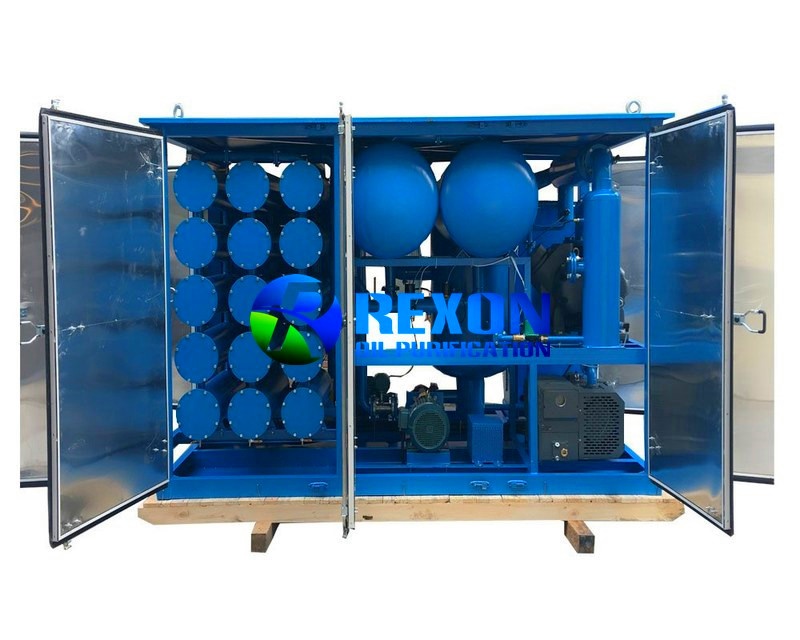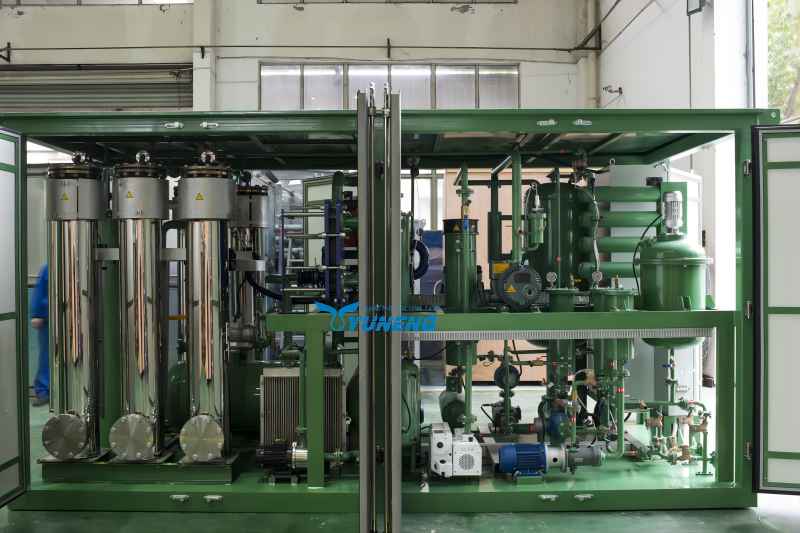Why Transformer Oil Regeneration Is Important for Effectiveness
Wiki Article
Just How Regenerated Transformer Oil Prolongs Transformer Life Expectancy
The duty of transformer oil is important in ensuring the integrity and longevity of transformers, serving as both an insulator and coolant. Regrowed transformer oil supplies an engaging option to enhance these functions by effectively removing hazardous impurities that compromise performance.Value of Transformer Oil
Transformer oil plays a vital role in the reliable operation of electrical transformers. It primarily acts as an insulating medium, guaranteeing and avoiding electrical discharges that elements operate safely under high voltage conditions. The oil's dielectric residential properties are fundamental to maintaining the honesty of the transformer, as they reduce the risk of failings that might lead to devastating cases or pricey downtimes.Along with its shielding abilities, transformer oil also works as a coolant. As transformers operate, they create warmth that must be dissipated to stop overheating and subsequent damage. The oil flows within the transformer, transferring and soaking up warmth away from crucial components, thus maintaining optimum operating temperatures.
Moreover, transformer oil functions as an obstacle versus dampness and pollutants, which can jeopardize the performance and durability of the transformer. Its chemical buildings aid in reducing the effects of acids and various other byproducts that might develop in time, adding to the general wellness of the electrical system.
Advantages of Regenerated Oil

Furthermore, regenerated transformer oil has a lower level of impurities, including fragments and pollutants that can weaken performance. This purity not just enhances the oil's thermal conductivity yet also expands the operational life-span of transformers by reducing overheating risks. The improved thermal stability of regenerated oil makes sure regular efficiency also under high operating temperature levels, which is essential for keeping transformer effectiveness.
One more advantage is its environmental influence. Restored oil advertises sustainability by minimizing waste and the requirement for brand-new oil production, therefore lowering the carbon footprint related to transformer maintenance. Transformer Oil Regeneration. The durability of regenerated oil translates to lower maintenance expenses over time, as fewer oil adjustments and much less constant devices downtime are called for.
Process of Oil Regeneration
The regeneration of transformer oil includes an organized process created to bring back the oil's initial homes and improve its performance. This procedure usually starts with the elimination of the utilized oil from the transformer, which is then based on different filtration strategies.The primary step in the regrowth procedure is the purification, where strong contaminants such as dust, sludge, and metal fragments are eliminated. This is frequently adhered to by vacuum cleaner distillation, which helps to remove dampness and unpredictable compounds, consequently enhancing the oil's dielectric toughness.

Effect On Transformer Efficiency
Recovering the properties of regenerated transformer oil considerably influences the general efficiency of transformers. Boosted dielectric strength is among one of the most vital advantages, as it allows for much better insulation and decreases the probability of electric failure. This improvement causes a much more steady procedure under high voltage conditions, inevitably leading to boosted effectiveness.Furthermore, the elimination of impurities and degradation items throughout the regrowth procedure decreases the risk of overheating. Cleaner oil facilitates far better warmth dissipation, which is essential for keeping ideal operating temperature levels. Consequently, the thermal performance of the transformer is improved, enabling higher lots without endangering integrity.
Moreover, the chemical stability of regenerated oil guarantees long term operational life. It stands up to oxidation and destruction, decreasing the frequency of maintenance interventions and oil replacement. This security not only contributes to improved efficiency yet likewise lines up with sustainability goals by decreasing waste.
Future of Transformer Upkeep
As innovations in technology continue to improve the landscape of electrical engineering, the future of transformer maintenance is positioned for considerable transformation. The assimilation of wise technologies, such as IoT sensors and anticipating analytics, allows real-time surveillance of transformer health, enhancing the ability to preemptively resolve issues prior to they intensify into major failures. This positive method not only optimizes functional efficiency but likewise prolongs the lifespan of transformers.Moreover, the application of expert system (AI) in information analysis permits more precise mistake detection and medical diagnosis. By leveraging artificial intelligence algorithms, maintenance groups can recognize patterns in operational information that human analysts might neglect, leading to even more informed decision-making.
Additionally, the adoption of environment-friendly practices, including using regenerated transformer oil, is set to redefine upkeep procedures. This lasting approach not just lessens ecological effect however likewise improves the total wellness of the transformer.
Lastly, the change towards automation in upkeep processes is expected to enhance procedures, reduce downtime, and lower prices. As these advancements continue to evolve, the future of transformer upkeep will undoubtedly become more efficient, reliable, and sustainable, guaranteeing the integrity of important electrical framework.
Verdict
The use of regenerated transformer oil dramatically improves the operational durability of transformers. Eventually, the adoption of restored oil stands for a pivotal development in transformer upkeep, making sure optimal performance and sustainability in the monitoring of electrical infrastructure.The function of transformer oil is crucial in making certain the dependability and durability of transformers, offering as both an insulator and coolant.Transformer oil plays a critical duty in the effective procedure of electrical transformers. Regenerated oil promotes sustainability by decreasing waste and the need for new oil manufacturing, consequently decreasing the carbon footprint linked with transformer upkeep.Recovering the residential properties of regenerated transformer oil significantly influences the general performance of transformers.The use of regenerated transformer oil significantly improves the functional long life of transformers.
Report this wiki page